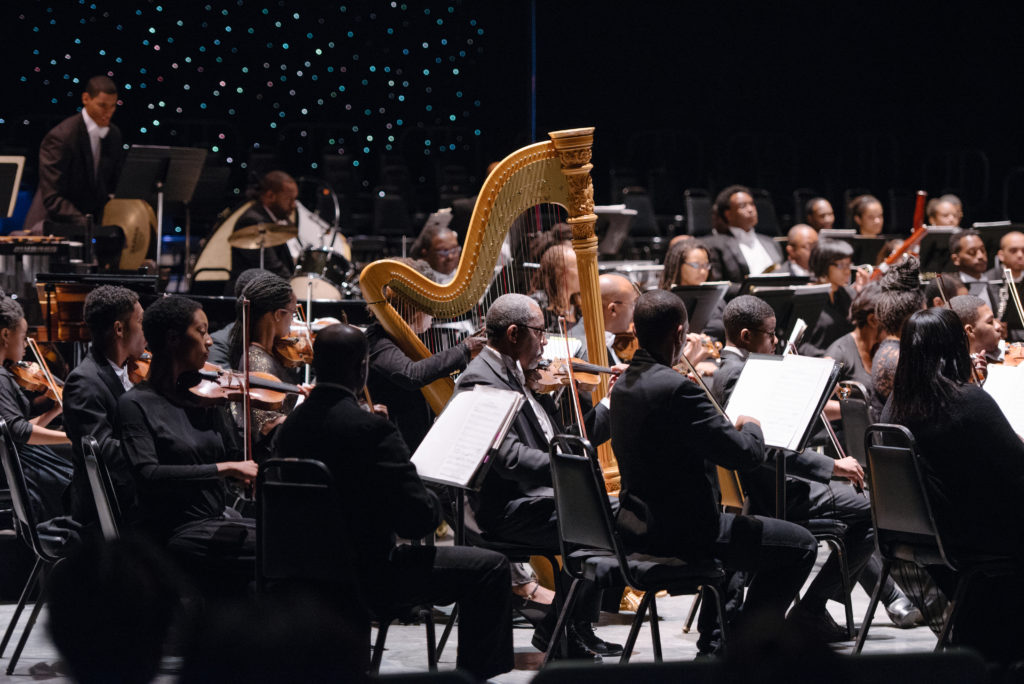
Lee Pringle thinks classical music has a color problem. Specifically, he says there’s a diverse enough talent pool to expect a far greater number of nonwhite performers on stage at classical concerts and recitals. Six years ago, Pringle founded a traveling music festival designed to prove the point that there are plenty of black musicians with the necessary education, skill and artistry; this week it makes a first-ever stop in Nashville.
The Colour of Music Festival is designed to touch on as many aspects of classical performance as possible. It’s a series of performances on a variety of scales, from solo organ to full orchestra. Every performer is black—the chamber orchestra goes one step farther to be staffed entirely by black women—and the programs are chosen to reflect the history of black contributions to the classical canon.
There are, of course, other efforts to bolster black representation in the classical world. For a quarter century, the Eastman School of Music in Rochester, New York has drawn together musicians of African descent for its Gateways Music Festival. That event serves as a great community builder, an annual gathering where black musicians can enjoy each other’s company, make music together, and discover compositions by black composers in a special place that’s all theirs. In some ways it takes on aspects of a family reunion (a family entirely made up of incredibly skilled instrumentalists and singers, that is).
Founded around the same time as the Gateways Festival, the Detroit-based Sphinx organization has invested in improving opportunities for young black and Latinx classical performers, most notably through an annual competition with a $50,000 grand prize. Sphinx also administers the National Alliance for Audition Support, which provides mentoring, practice auditions and financial support for musicians of color who have reached the point of trying to find jobs in professional ensembles.
Locally, Tennessee State University’s annual Harry T. Burleigh Festival joined the ranks of like-minded events a few years ago. Using the tradition and influence of spirituals as its organizing focus, the festival specifically reaches out to student musicians and offers choral training and masterclass elements.
The Colour of Music festival has education and community building components, too, but by taking its performances from city to city it adds a different dimension. It is not a protected space for a certain demographic group as much as it is a showcase that goes into a variety of venues where classical music is regularly made, giving the festival’s performers a chance to show that they belong in those spaces, too. 
The Colour of Music Festival is based in Charleston, South Carolina. In the last year, it has visited Houston, Pittsburgh and Richmond as well as mounting concerts in its home city. The Nashville version of the festival, billed as “petit” because it takes place across just three days, will mount concerts in the performance halls at Belmont and Blair Schools of Music, the W.O. Smith School, West End United Methodist Church and at the Frist Art Museum.
Of particular interest to Nashville, the “petit” festival includes a program celebrating the legacy of a tenor who got his start in this city more than a century ago as a member of the Fisk Jubilee Singers. Roland Hayes went on to break the color barrier in concert halls across Europe and the United States and was the first black opera singer to earn a recording contract.
The Nashville version of the festival features performances by soprano Laquita Mitchell, pianist Kyle P. Walker, tenor Rodrick Dixon and organist Anthony Williams, with conductors David Morrow and Chelsea Tipton leading large ensembles. You can find a full schedule of events on the festival’s website.
